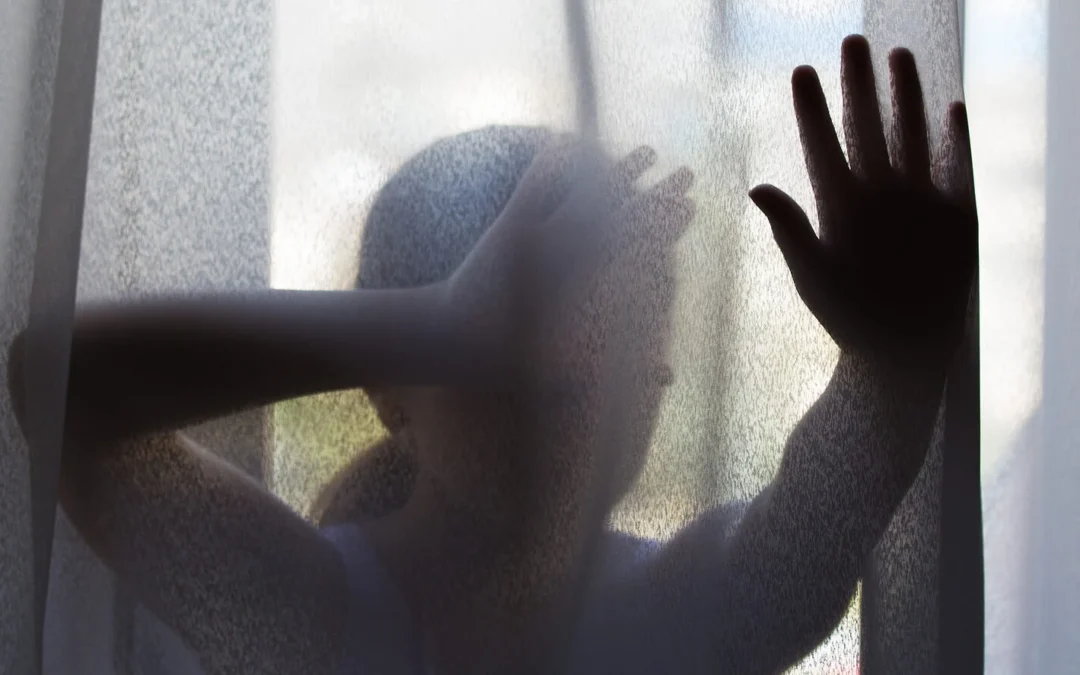Childhood trauma is defined as any experience during childhood that causes distress or emotional pain. This experience or experiences can be dangerous or harmful leading them to cause long-lasting effects on you as a child. The trauma can range from physical, sexual, or emotional abuse, neglect, witnessing violence, or having a parent with mental health concerns. These experiences can have a profound impact on a child’s development and may even lead to the development of PTSD (Post-Traumatic Stress Disorder).
During childhood, your brain is still developing and these traumatic experiences can disrupt that development. Therefore, leading to changes in brain structure and function. This can impact how a child responds to stress and processes emotions, making them more susceptible to developing PTSD later on in life. So, can childhood trauma cause PTSD?
Understanding Childhood Trauma
The short answer is yes, childhood trauma can cause PTSD. However, it’s important to understand that not everyone who experiences childhood trauma will develop PTSD. There are various factors that can influence the development of PTSD, such as genetics, resilience, and support systems. When you, as a child, experience or witness a traumatic event, your brain may not have the capacity to fully process and cope with the experience. This can lead to long-term emotional and psychological consequences.
Some common symptoms of childhood trauma result in hypervigilance which appear to be ADHD symptoms. But they can also include avoidance of reminders, flashbacks or nightmares, bed wetting, difficulty sleeping, withdrawing to be alone and changes in mood or behavior. These symptoms, usually, can be observed within 6 months of the traumatic event, and if left untreated, can have long-lasting effects on an individual’s mental health. However, since they are similar to symptoms of other mental health concerns, it’s important to seek professional help from a Fort Worth trauma therapist for an accurate diagnosis.
What is PTSD?
PTSD (Post-Traumatic Stress Disorder) is a mental health concern that can develop after experiencing or witnessing a traumatic event. Often, there is a stigma that PTSD is only associated with veterans but the truth is that it can affect anyone who has gone through a traumatic experience, including children. PTSD can develop in children due to various reasons, including neglect, abuse, or exposure to violence. It can affect a child’s ability to function in daily life and can lead to long-lasting consequences if not treated promptly.
The timing of trauma is important as it can coincide with significant developmental milestones. When trauma interferes, it can disrupt the normal progression of attachment styles. This influences how a child forms relationships in the future. Secure attachment—a critical development stage where a child learns to trust and depend on caregivers—may be compromised. This breach in trust can lead to difficulties in forming healthy relationships later in life, further exacerbating PTSD symptoms. Individuals with unresolved childhood trauma may exhibit attachment styles that are avoidant or anxious, reflecting their inner struggle with intimacy and trust.
As a Child, You May Have Been in a Consistent State of Survival Mode
The continuous exposure to trauma from a young age prevents a child from fully engaging with their surroundings. This necessary survival mechanism unfortunately limits emotional growth and the formation of effective coping mechanisms. As a result, when faced with similar stressful situations later in life, these individuals may react in ways that are overly intense or not helpful, indicative of their deep-seated PTSD. Their early life conditioning to view the world as a dangerous place severely impacts their ability to feel safe, a crucial element for sound psychological growth. This ongoing cycle of trauma response not only degrades their life quality but also hampers their ability to reach important life milestones or form stable, nurturing relationships.
How is C-PTSD Different?

This is because, at such a tender age, a child’s primary focus shifts from exploration and learning to surviving. Making it challenging for them to concentrate on schooling or fostering relationships. When children experience or are exposed to adverse childhood experiences (ACES) they may feel unable to control the constant chaos. Whether it’s in the house, in school, or within themselves. They can find it hard to find stability in the situation, environment, and even themselves. Thus, they’re at high risk of developing C-PTSD.
Childhood Abuse
When a child’s trust in the world is shattered through physical or sexual abuse, it acts as a poison. It seeps deep into their sense of security and self, leaving wounds that are invisible yet profound. This breach of innocence teaches them that life is a terrain fraught with hidden dangers. One where they must always be on guard. Sadly, this predisposition does not fade with age. If you have endured physical or sexual abuse in your childhood and then encounter similar situations in adulthood, it can reawaken that dormant terror. Therefore, triggering a potent PTSD response.
This cycle is tragically self-perpetuating, as those who have experienced such abuse might find themselves, knowingly or unknowingly, in relationships that echo the abusive patterns of their past, intensifying and validating their PTSD symptoms. Equally destructive, though less visible, emotional neglect and psychological abuse carve deep scars into a child’s developing psyche. They strip away the child’s belief in their worth and corrode the foundations of future relationships. Symptoms manifest in ways that are both heartbreaking and deeply concerning.
Adults who survived such neglect often find themselves grappling with an inability to trust others, cocooned in a pervasive sense of loneliness, even in a crowd. Depression becomes a shadow, dimming the vibrancy of life, while isolation turns into a refuge from the bewildering complexity of human emotions. For them, emotional expression is a landscape riddled with landmines, leading to a tendency to repress feelings rather than share them. Consequently, forming close, intimate connections becomes a monumental task, fraught with anxiety and fear.
How Trauma Treatment in Fort Worth, TX Can Make a Difference
Overcoming PTSD involves recognizing its impact and seeking professional help. In Fort Worth, TX, there are a variety of resources for those dealing with PTSD or C-PTSD. Including individual and group therapy, alongside specialized treatment programs tailored to meet individual needs. With professional guidance, individuals can embark on a journey toward healing and reclaiming their lives.
Here are some tips to help you deal with trauma right now:
- Your trauma does not define you.
- Remember, what happened to you is just one part of your story. You are more than your experiences, and therapy can help you rediscover your identity beyond your trauma.
- It is not your fault.
- Often, trauma comes with feelings of guilt and shame. It’s crucial to understand that you are not to blame for what happened to you. Therapy can provide a safe space to work through these feelings and begin the process of healing.
- There is hope for your healing.
- No matter how deep your wounds may seem, healing is possible. With the right support and treatment, you can learn to feel safe again and move forward with your life.

Overcome Your Childhood Trauma with Trauma Treatment in Fort Worth, Texas
If you or someone you know is dealing with PTSD or C-PTSD, seeking help is the first step towards healing. Trauma treatment in Fort Worth, TX can provide a safe and supportive environment for individuals to work through their trauma and reclaim their sense of self. At Anew Counseling DFW, we specialize in trauma therapy and offer a variety of services tailored to meet individual needs. No matter how your trauma manifests, our specialized trauma therapists in Fort Worth are here to support you on your journey towards healing and growth. Take the first step today:
- Fill out our intake form and schedule your free 15-minute consultation.
- Schedule your first appointment to address your childhood trauma.
- Overcome your childhood trauma and begin living the life you deserve!
Other Therapy Services Offered at Our Fort Worth Therapy Practice
Your unresolved trauma may manifest in various ways, affecting different areas of your life. That’s why at Anew Counseling DFW, we offer a range of therapy services to address these different needs and help you achieve overall wellness. Some of the additional services we provide at our Fort Worth, TX-based therapy practice include Sex Addiction Recovery, Porn Addiction Treatment. As well as Anxiety Therapy, Depression Therapy, and Couples Therapy. Our team of experienced therapists is dedicated to helping you heal from trauma and achieve long-lasting, positive change in your life. Take the first step towards overcoming your trauma today by reaching out to our Fort Worth-based therapy practice for support and guidance.

Recent Comments